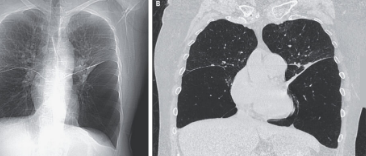The Benefits of Choosing an Elective Pulmonologist for Comprehensive Lung Care

Lung health is a crucial but often overlooked aspect of overall wellbeing. With respiratory conditions on the rise due to factors such as pollution, smoking, and evolving diseases, the significance of specialized lung care cannot be overstated. One of the best decisions patients can make when it comes to safeguarding their respiratory health is choosing an elective pulmonologist. For those unfamiliar, an Pulmonologist Elective physician (lungenfacharzt wahlarzt ) is a specialist in lung and respiratory conditions, chosen preemptively or for managing chronic or recurring symptoms. This decision, made in a non-emergency setting, allows for a more thorough, consistent, and personalized approach to lung care.
Below, we explore the many benefits of seeking care from an elective pulmonologist and why this proactive decision can significantly improve health outcomes.
Expertise in Diagnosing Respiratory Conditions
One of the most significant advantages of choosing an elective pulmonologist is their expertise in diagnosing a wide range of respiratory conditions. From common issues like asthma and chronic obstructive pulmonary disease (COPD), to more complex conditions such as interstitial lung disease and pulmonary hypertension, their in-depth knowledge allows for accurate and efficient assessments. Many general practitioners may not have the detailed expertise required to pinpoint the root causes of respiratory issues. Elective pulmonologists, however, are trained to look deeper, ensuring accurate diagnoses even when symptoms are vague or overlapping. Their ability to identify conditions at an early stage can prevent complications down the line, saving time and reducing long-term health risks.
Personalized Treatment Plans
Elective pulmonologists do not believe in one-size-fits-all solutions. Unlike treatment approaches that are standardized across a wide range of cases, these specialists offer personalized care tailored to each patient’s unique needs. Factors like medical history, lifestyle, work environment, and genetic predisposition are thoroughly considered when creating treatment plans. This level of customization is beneficial for conditions like asthma, where triggers vary widely between individuals, or sleep apnea, which might be influenced by factors specific to a patient’s anatomy or habits. Through fine-tuned strategies, elective pulmonologists not only alleviate symptoms more effectively but also work towards achieving long-term improvements in quality of life.
Access to Advanced Diagnostic Tools
State-of-the-art diagnostic tools often make the difference between an average assessment and pinpoint precision. Elective pulmonologists generally have access to advanced diagnostic methods, including pulmonary function tests, CT scans, bronchoscopy, and sleep studies. These tools provide comprehensive insights into lung function and structure, enabling precise treatment decisions. By working with these specialists proactively, patients have the opportunity to undergo certain tests that are not typically recommended until symptoms worsen under standard care. Early access to these advanced diagnostics helps catch potential problems before they escalate, underscoring the value of seeking elective care.
Continuity in Care
Respiratory conditions, especially chronic ones, demand consistent follow-ups and meticulous management. Elective pulmonologists offer continuity in care, a feature often missing in emergency or sporadic consultations. Since these specialists build long-term relationships with their patients, they are better positioned to track progress, adjust treatments, and introduce new therapies as required. Consistent care also ensures that potential relapses or deteriorations are identified and addressed immediately, minimizing disruptions to daily life. Furthermore, having a dedicated pulmonologist means answering patient questions, addressing concerns promptly, and reducing the stress often associated with navigating chronic health conditions.